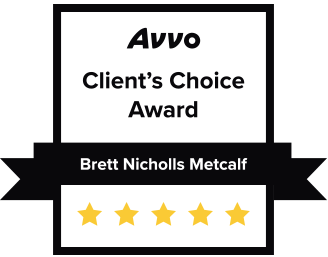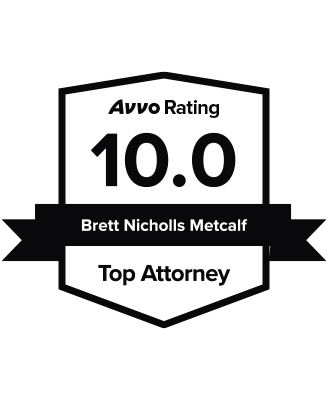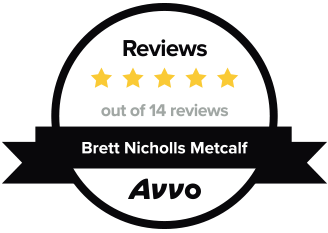RICO convictions can carry hefty penalties, including fines and prison time. And before you ever see the inside of a courtroom, prosecutors can freeze and seize assets acquired with the proceeds of racketeering activity. Our skilled RICO charge lawyer can help you challenge these actions and defend your rights from the start.
When you face RICO charges, you could lose everything, including your freedom, property, and reputation. Metcalf Falls, Criminal Defense Attorneys, P.A. understands the high stakes you face in your RICO case and provides an experienced RICO defense attorney to stand up against the government to defend your rights.
Contact us or call 813-258-4800 today for a free consultation.
What Is a RICO Charge?
RICO stands for Racketeer Influenced and Corrupt Organizations Act. Congress passed this set of laws in 1970 to give the U.S. additional tools to combat organized crime. Over time, courts have interpreted this law to extend far beyond mobsters and the Mafia.
According to the U.S. Justice Department RICO guidelines, prosecutors can bring federal RICO charges against any organization, including street gangs, drug cartels, and legitimate businesses for activities ranging from violent crimes to white-collar crimes.
Types of RICO Charges in Florida
A RICO charge occurs when someone engages in racketeering on behalf of an organization. RICO relies on the prosecution proving you committed other crimes. These crimes, called predicates, include a long list of state crimes such as:
- Murder
- Kidnapping
- Gambling
- Arson
- Robbery
- Bribery
- Extortion
- Dealing obscene matter
- Dealing controlled substances or listed chemicals
What Are Examples of Federal RICO Crimes?
They can also include federal crimes such as:
- Human trafficking
- Firearms and weapons trafficking
- Drug trafficking
- Counterfeit goods trafficking
- Counterfeiting
- Embezzlement from pension or welfare funds
- Forgery of identification documents
- Immigration fraud
- Witness tampering
- Obstruction of justice
- Money laundering
- Economic espionage
- Operating an illegal gambling business
- Transporting illegal gambling equipment
- Transporting stolen goods
- Child pornography
- Securities fraud
What Are Predicate Offenses for RICO Charges?
The three predicates that federal prosecutors often rely upon include mail fraud, wire fraud, and failure to report currency and foreign transactions. Every business uses mail and electronic communications. If the government alleges your communications were fraudulent, they can charge you with mail or wire fraud and use that as a predicate for a RICO charge.
Similarly, every business has monetary transactions. If you have unreported cash payments over $10,000 or foreign currency transactions, the government can use them as predicates for RICO.
How Do Prosecutors Prove RICO Crimes?
Prosecutors must prove more than the predicate crimes. They must prove that these crimes establish a pattern of racketeering activities and that you were part of an enterprise.
A pattern means the activity happened more than once. It also means the racketeering activities had the same or similar purposes, results, participants, victims, or methods of commission.
Enterprise has a very broad definition and includes both legal entities, like corporations or partnerships, as well as non-legal entities, like associations or gangs. The government must prove you knew you were part of an enterprise. But it does not need to prove you knew anyone else.
What is Florida’s RICO Act?
Florida’s RICO Act covers racketeering activity within the state. State prosecutors must show that you participated in an enterprise engaged in a pattern of racketeering activity.
The legal theory is identical to the federal RICO Act. You might face RICO charges at the state level rather than the federal level in a few situations. State RICO laws can include state-level predicate crimes like:
- Assault
- Wildlife poaching
- Workers’ compensation fraud
- Loansharking
- Cockfighting or dog fighting
What is the Federal RICO Act?
The U.S. Department of Justice (DOJ) can also pursue RICO charges when the only predicate offenses are state-level crimes. But DOJ policy advises federal prosecutors to only pursue federal RICO charges based on state-level predicate crimes when:
- State officials are unlikely to pursue a case in which the U.S. has an interest
- Organized crime enterprises are significantly involved
- Targets include government or political figures that state prosecutors may not pursue
What Are the Penalties of a RICO Charge?
A Florida RICO violation is a first-degree felony. The judge can sentence you to up to 30 years in prison and a fine of up to $10,000. You will also get sentenced for any predicate offenses in which prosecutors secured a conviction.Florida judges have wide discretion to determine when you can serve these sentences concurrently.
Federal RICO violations can be punished with up to 20 years in prison. The judge can also impose a fine of $25,000 per racketeering count up to $250,000. Again, the judge will also sentence you for any underlying predicate offenses of which you were convicted.
These sentences can deprive you of your freedom for a significant portion of your life, even if your federal RICO sentence is imposed concurrently.
Other Consequences of a RICO Conviction
Congress passed the RICO Act to give prosecutors tools to battle organized criminal figures with significant resources. To prevent the proceeds of the criminal enterprise from disappearing before trial, the RICO Act allows prosecutors to seize:
- Cash
- Bank accounts
- Vehicles
- Homes
- Businesses
Importantly, the government does not need to convict you to seize your property. Prosecutors only need to show that the property was either used in the commission of the offense or bought using the proceeds.
Other consequences of a RICO conviction include:
- Loss of employment
- Loss of professional licenses
- Modification of child custody arrangements
Can I Defend Against RICO Charges?
You and your racketeering criminal lawyer in Tampa have several options for defending against RICO charges. For example, you can fight the underlying predicate crimes. You can only be convicted of a RICO violation if you engaged in at least two criminal acts. By disproving that you committed any criminal acts, you can avoid the RICO charge.
Challenging Predicate Crimes
For example, you can fight the underlying predicate crimes. You can only be convicted of a RICO violation if you engaged in at least two criminal acts. By disproving that you committed any criminal acts, you can avoid the RICO charge.
Similarly, you can challenge the “enterprise” element if the alleged conduct did not involve any other individuals or businesses.
Another potential defense comes from the “pattern” element. If the charged offenses were random and did not connect with each other, prosecutors cannot prove the existence of a pattern.
Other Potential Defenses
Finally, you have the same defenses that you could use against any other charges. For example, if the prosecutor fails to present evidence to persuade a jury of every element beyond a reasonable doubt, the jury must acquit you.
If law enforcement agencies violate your rights, the judge can exclude any evidence gathered in violation of state, federal, or Constitutional limits. Without this evidence, prosecutors might not have enough to convict you.
Should I Take a Plea Bargain or Go to Trial?
The federal legal process begins with an investigation. RICO charges can come from many different agencies at the state or federal level.
Your defense attorney will discuss the possibility of a plea bargain with prosecutors. Under this agreement, you would plead guilty to certain charges in exchange for:
- Dismissal of certain charges
- Reduction of your charges
- A sentencing recommendation
Both sides avoid the uncertainty of a trial by entering into a plea bargain. In some RICO cases, the prosecution will want your testimony against someone else in the enterprise and may be willing to offer you generous terms.
Plea bargains also have drawbacks. If you plead guilty, you cannot get acquitted. Also, the world treats a guilty plea as a conviction. If you plead guilty, you must report it truthfully if anyone asks you about prior convictions on applications for jobs, housing, or firearm purchases.
How a Florida RICO Attorney Can Help
A RICO attorney from Metcalf Falls has experience dealing with these charges and the prosecutors who bring them.
Your criminal lawyer in Tampa will gather evidence to defend you. Prosecutors must turn over all their evidence to your lawyer as well. The lawyer will analyze the evidence against you and advise you about your options for fighting the charges.
If you choose to go to trial, your RICO attorney will prepare a custom defense for you based on your circumstances. An experienced defense lawyer knows the arguments that will persuade a jury to acquit you. At trial, your white-collar defense lawyer will aggressively advocate for you.
FAQs About RICO Crimes in Florida
What types of organizations can be charged under RICO laws?
RICO laws apply to both legitimate and illegitimate organizations, including businesses, gangs, and other groups. Even loosely associated individuals can be considered an enterprise under RICO if they engage in coordinated criminal activity.
Can I be charged under RICO if I didn’t personally commit a crime?
Yes. You can face RICO charges if prosecutors can prove that you participated in or furthered an enterprise’s illegal activities, even if you didn’t commit the predicate offenses directly.
How are RICO charges different from other criminal charges?
RICO charges focus on patterns of criminal behavior within an organization, rather than isolated incidents. They carry severe penalties and often involve asset forfeiture, making them more complex and impactful than standard criminal charges.
What is asset forfeiture in a RICO case?
Asset forfeiture allows the government to seize property, money, and other assets tied to the alleged racketeering activities, even before a conviction. This can include homes, vehicles, and bank accounts.
How do plea deals work in RICO cases?
Plea deals in RICO cases may involve pleading guilty to lesser charges in exchange for reduced penalties or providing testimony against other members of the enterprise. Your attorney can help determine if a plea deal is in your best interest.
Contact an Experienced RICO Defense Lawyer in Florida Today
When you face serious charges like a RICO violation, you need an attorney who will listen to your story and thoroughly investigate the charges against you.
Your lawyer must also be prepared to fight prosecutors on all fronts. Whether you get charged at the state or federal level, prosecutors save RICO charges for the most serious cases. They will use every resource at their disposal to try to convict you. You need a criminal attorney in Tampa who has the experience and resources to take the fight to prosecutors.
Contact us or call 813-258-4800 today for a free consultation. to discuss your RICO charges and how we can help defend you.






